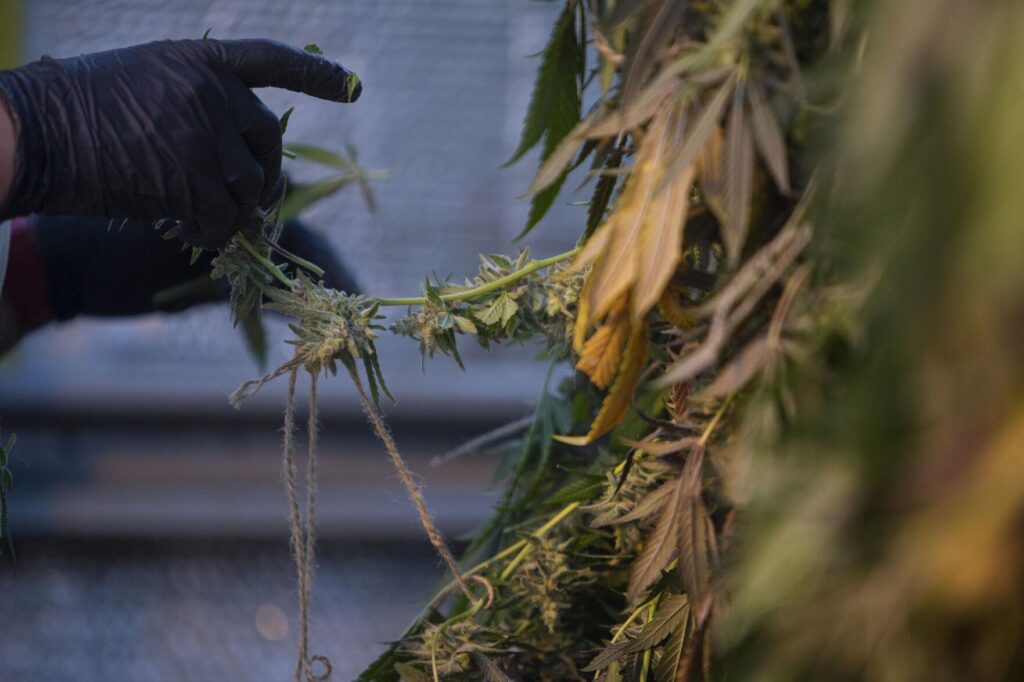The Colorado School of Public Health and creative collaborator Initium Health started an awareness campaign about the risks of potent cannabis with youth and parents.
The first-of-its-kind public awareness campaign, “The Tea on THC” looks to educate Coloradans on the “often-overlooked” health risks of high-concentration cannabis, according to a news release from ColoradoSPH.
The campaign will focus on raising awareness and opening dialogue on the subject, providing resources for youth, young adults, parents and mentors who engage with them, and pregnant or parenting people, the school said.
“Today’s cannabis products contain far more of the psychoactive ingredient, THC, than those of the past,” said Dr. Jonathan Samet, a ColoradoSPH professor, epidemiologist and pulmonary physician, in the release.
The campaign includes learning curricula, podcasts, state and national resource links and alternative coping strategies with personal stories from local youth and parents.
Former Denver Bronco All-Pro wide receiver Brandon Lloyd is also set to speak on his mental health issues regarding the use of THC.
The awareness campaign comes thanks to House Bill 21-1317, passed in 2021, that directed ColoradoSPH to study the published evidence about high-concentration THC products and their effects on health. The bill also included the requirement of a public awareness campaign around the information.
“This new awareness campaign demonstrates how policymakers, researchers and community groups can come together to address pressing public health concerns,” said Dr. Cathy Bradley, dean of the Colorado School of Public Health.
The Marijuana Industry Group (MIG), the first cannabis trade group to partner with state agencies and health departments on cannabis public service campaigns, said the idea of a campaign only focusing on high-concentration cannabis is a questionable move.
“While the choice to focus exclusively on high concentration cannabis is a bit head scratching, MIG commends the School of Public Health on focusing their efforts on youth and mothers who are breastfeeding or pregnant,” Executive Director and CEO Truman Bradley told The Denver Gazette. “Kids should never use cannabis of any concentration, unless it’s under the strict supervision of their medical team.”
Truman Bradley noted that one of the biggest benefits to the legalization of cannabis is the ability to limit recreational sales to only those over the age of 21, adding that use of cannabis among minors in Colorado is at an all time low.
The Colorado Department of Public Health and Environment’s biannual Healthy Kids Colorado Survey — which asked questions of more than 120,000 students from 344 schools in 46 Colorado counties — found that 12.8% of high school students in Colorado reported using cannabis in the 30 days prior to the 2023 survey.
It’s a slight decrease from the last survey, which showed 13.3% of students reported using marijuana. It reached as high as 20.6% in 2019.
Marijuana usage across all ages appears to be waning, judging by sales levels in Colorado.
Marijuana sales and tax revenue numbers have seen a decline over the past three years, according to data from the Colorado Department of Revenue.
Tax revenue totals reached a high of $423,486,053 in 2021 on $2,228,994,553 in sales. That number dropped to $325,103,684 in 2022 on $1,768,688,837 in sales and $274,121,043 in 2023 on $1,529,324,553 in sales.
As of October, the year-to-date total for 2024 is $216,075,226 on $1,174,297,758 in sales — on pace to be even lower than 2023.
According to Truman Bradley, the downturn is due to unlicensed intoxicating hemp products, out-of-date tax models and overburdensome regulations, with sales being down 30% for recreational and over 60% for medical over the past three years.
“Decade number two of legalization needs to fundamentally look different than decade number one, and this includes examining statutes, rules and tax laws that were originally put in place,” he said. “If we don’t all collectively do this, there won’t be a cannabis industry in Colorado.”
ColoradoSPH officials are working to make sure education levels remain high, rather than rates of youth cannabis use.
“Our hope is that The Tea on THC campaign will get the conversation started around the risks associated with today’s cannabis,” Dr. Cathy Bradley said. “Talking through difficult truths with people you trust is the way to better health. And Colorado is ready to have that conversation.”
H/T: denvergazette.com



